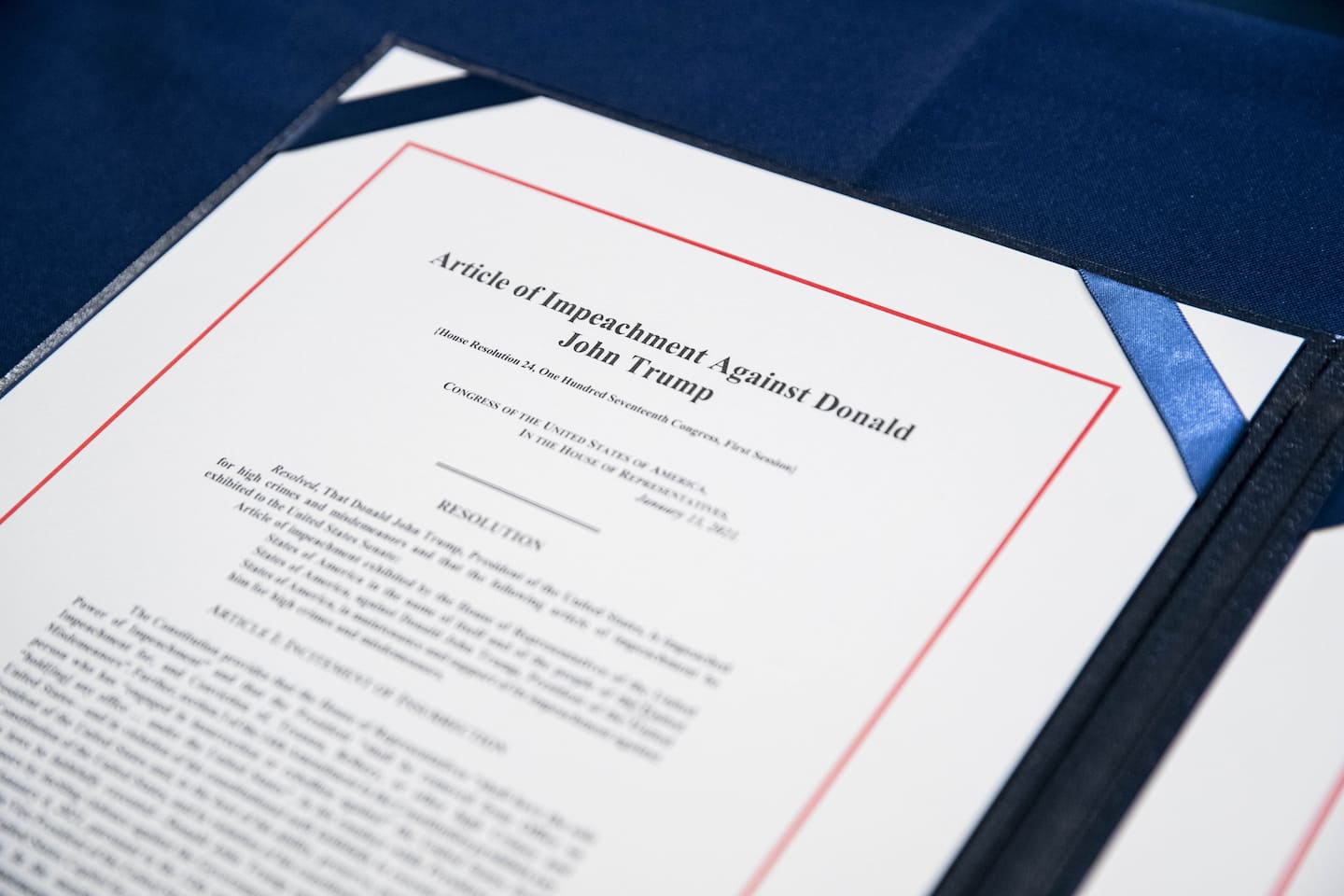Senators can try Trump. But should they?

He incited an armed assault against the legislative branch. Even Robert E. Lee had the decency to resign before leading an insurrection.
There’s no amount of enduring humiliation that Trump doesn’t deserve. The problem I keep coming back to, though, is that I don’t believe this is what impeachment is for.
I’m no lawyer, so I’ll leave it to the professors to decide whether it’s constitutional to try, and convict, a president no longer in office. Even if it is, just because you can do something doesn’t mean you should.
Impeachment isn’t supposed to be a criminal trial by other means; the Framers didn’t create it so there would be a special place to try presidents for their crimes, like night court for the executive branch.
Impeachment is a political process, not a legal one, which is why they came up with this vague standard — “high crimes and misdemeanors” — and an almost impossible bar for conviction. It’s designed to be an expression of clear public will so that an electorate overcome with buyer’s remorse has the chance to remove a president before the next election.
This is why I argued against Trump’s first impeachment trial, on the narrow charge of interfering in foreign affairs for political gain. Polls showed that a majority of the public, while disapproving, never saw the offense as one that warranted the extraordinary step of negating an election — and that’s the only standard that matters.
By this logic, convicting a president who is no longer president — even if the votes are there to do so — makes no sense. The public already expressed its remorse over Trump’s election by rejecting him soundly at the polls.
I get the counterargument that Trump has to be held accountable for a treasonous act. The new Senate majority leader, New York’s Charles E. Schumer (D), says that forgoing a Senate trial would amount to giving Trump a “get-out-of-jail-free card.”
But that’s some pretty specious logic, even if I sympathize with the emotion. If Trump is guilty of criminal offenses up to and including sedition, the good news is that he’s now a private citizen, as subject to prosecution as the rest of us.
Which means we don’t need impeachment to hold him accountable. We have actual courts for that.
This is why Gerald Ford’s pardon of a disgraced Richard Nixon was so controversial. There was never any talk of impeaching Nixon after he resigned. Instead, there was an assumption that he could be charged for his crimes like any other American and possibly serve time.
Trump should face the same fate, absent the pardon. The standard of proof for sedition — or whatever crimes Trump committed — might be harder to meet in a criminal court than in a Senate trial. But that’s where civilians belong, and the Justice Department pointedly refused to rule out charging Trump even before he left office.
Of course, the real reason Democrats remain committed to trying Trump in the Senate is that they’re angling for a punishment that no jury of Trump’s peers can mete out. Their hope, in the unlikely event they can win a conviction, is to bar Trump from ever holding office again.
It’s a tempting ploy — but, as with Trump’s ban from Twitter and Facebook, I find the idea unsettling. I have no doubt that Trump has proved himself morally unfit for higher office; if any crime deserved a lifetime ban, then his certainly qualifies.
But healthy democracies don’t go around banning candidates for fear they might rise up to hold power again, any more than we should go around silencing political speech we find reckless. Ultimately, the nation is better served when the voters do the disqualifying.
Right now, in the wake of his ignoble exit, Trump’s approval rating is as low as it has ever been. If the guardians of democracy really want to breathe new life into his movement, or provide more fodder for his conspiracy theories about the “deep state,” trying to banish him from public life would be a pretty solid start.
Trump doesn’t deserve to be martyred on the floor of the Senate. He doesn’t deserve the kind of trial reserved for a sitting president.
He’s an ordinary traitor now, and that’s exactly how we should treat him.
Read more:






